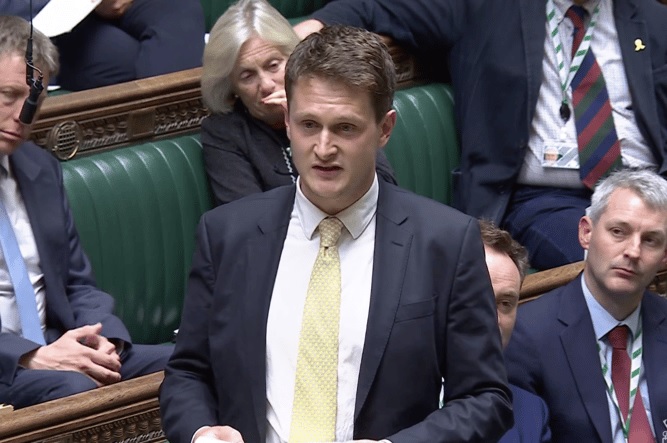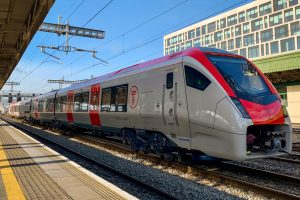Funding row reignites calls for rail devolution and fairer investment
A ROW over rail funding has reignited tensions between the UK Government and Welsh politicians after a senior Labour minister suggested Wales should be “more grateful” for its share of the latest transport budget.

The comment came during a heated exchange in Westminster between Welsh Liberal Democrat spokesperson David Chadwick MP and Chief Secretary to the Treasury Darren Jones. Chadwick had described the latest settlement as “insulting,” arguing that Wales had been “cheated” out of billions through decades of underinvestment and funding misclassification.
In response, Jones reportedly suggested Wales ought to show more appreciation for the £445 million allocated under the UK Government’s recent Spending Review.
Lib Dems slam “gobsmackingly arrogant” tone
The Welsh Liberal Democrats branded the remarks “gobsmackingly arrogant,” accusing Labour of continuing a pattern of disregard for Wales’ transport needs. Chadwick said the funding did not begin to address structural inequalities that had left Wales short-changed, especially after being excluded from HS2-related funding.
Under the current classification, HS2 is considered an “England and Wales” project, despite having no direct infrastructure benefit for Wales. As a result, Wales has received no Barnett consequentials from the scheme—an omission estimated to have cost the country several billion pounds.
Wales received £445 million in rail funding in the latest review, compared to £2.5 billion for Manchester, which has a smaller population than Wales.
Labour: funding delivered on “strategic priorities”
Defending the settlement, Treasury officials have previously said that transport investment is allocated based on “strategic need, passenger demand, and overall UK connectivity.”
Labour representatives have also stated that the funding aims to support journey improvements, safety upgrades, and economic recovery, and have emphasised ongoing support for infrastructure projects across the UK, including Wales.
Chief Secretary to the Treasury Darren Jones said in earlier remarks that the UK Government “continues to support Welsh rail improvements” and highlighted the funding of the South Wales Metro as an example of investment delivered through UK-wide cooperation.
Welsh Government also under scrutiny
While UK Labour is under fire over the allocation model, critics have also pointed to the Welsh Labour Government’s limited delivery on rail infrastructure, despite transport being partly devolved.
The long-awaited electrification of the south Wales mainline, for instance, remains incomplete, and projects in Mid and West Wales have seen little progress. Campaigners argue that both governments share responsibility for the current state of rail in Wales.
Cross-party frustration over HS2 classification
The funding row has drawn cross-party anger in Wales. Politicians from Plaid Cymru, the Conservatives, and the Liberal Democrats have all challenged the HS2 classification and called for reform of the Barnett formula as it applies to major England-only transport schemes.
There are also growing demands for the full devolution of rail powers to Wales, in line with the settlement enjoyed by Scotland. Chadwick recently raised this again in Parliament, but the UK Government refused the request.
Uncertain future as HS2 delayed
With HS2 now delayed beyond 2033, further investment rounds are expected, yet Wales is set to remain excluded unless the current funding model changes. Meanwhile, major new English rail projects like East-West Rail continue to receive billions.
Chadwick warned that without reform, Wales would “remain stuck on a branch line of UK transport policy—literally and politically.”
“Wales is in dire need of economic investment, given our high poverty levels and the legacy of deindustrialisation,” he said. “Yet the Minister says we should be grateful for the scraps. It’s simply unbelievable.”
The full exchange can be viewed at: ParliamentLive.tv














